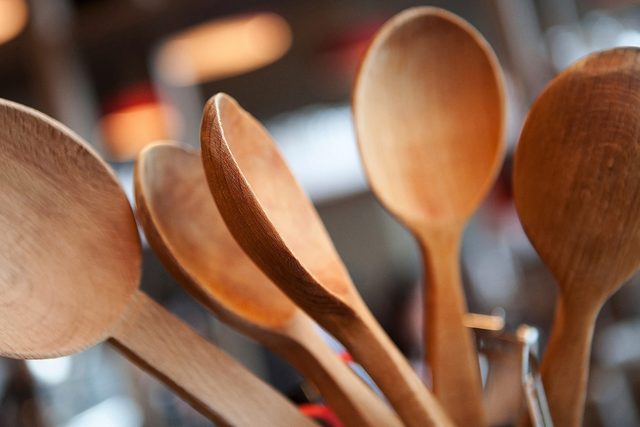This Is Why Your Wooden Spoon Smells Funky (And How to Fix It)
Updated: Mar. 20, 2023
The best ways to care for this essential kitchen staple.

Are you tasting yesterday’s stir-fry in tonight’s brownies? Cook’s Illustrated tested cleaning techniques for wooden utensils and found that baking soda eliminated smells most effectively, beating out detergent, water, vinegar, bleach, and a lemon dipped in salt. The reason: Baking soda is water soluble and is more easily absorbed, enabling it to neutralize the organic acids in the utensils.
Keep odorous bacteria out of your wooden spoon by oiling or seasoning it, which will also help it last longer. Tipnut.com recommends you preheat your oven to 350°F, then wipe the spoon down with warm olive oil and pop it in the oven for two to three minutes. Or, soak the spoon in oil for 24 hours, then wrap in plastic wrap and leave it overnight. Rinse before using. Seasoning your wooden spoons replenishes the wood and will help it last longer.
When you cook with your wooden spoon, wash it in hot, sudsy water quickly after each time you use it; don’t let the spoon sit in the water for too long and let it thoroughly air dry.
Whatever you do, don’t put wooden spoons (or any other wood) in the dishwasher, advises Martha Stewart, who says she’s had wooden spoons for 20 years that would not have lasted as long had she washed them in the dishwasher.
When should you finally say goodbye to a wooden spoon? Once your spoon begins to show cracks, slivers, or fraying, it’s time to toss it. These gaps will trap food and bacteria and lead to unpleasant smells. Time for an upgrade!
MORE: 25 Brilliant Kitchen Shortcuts You’ll Wish You Knew Sooner
